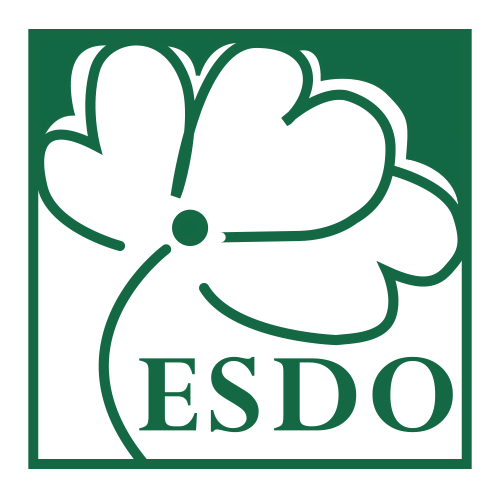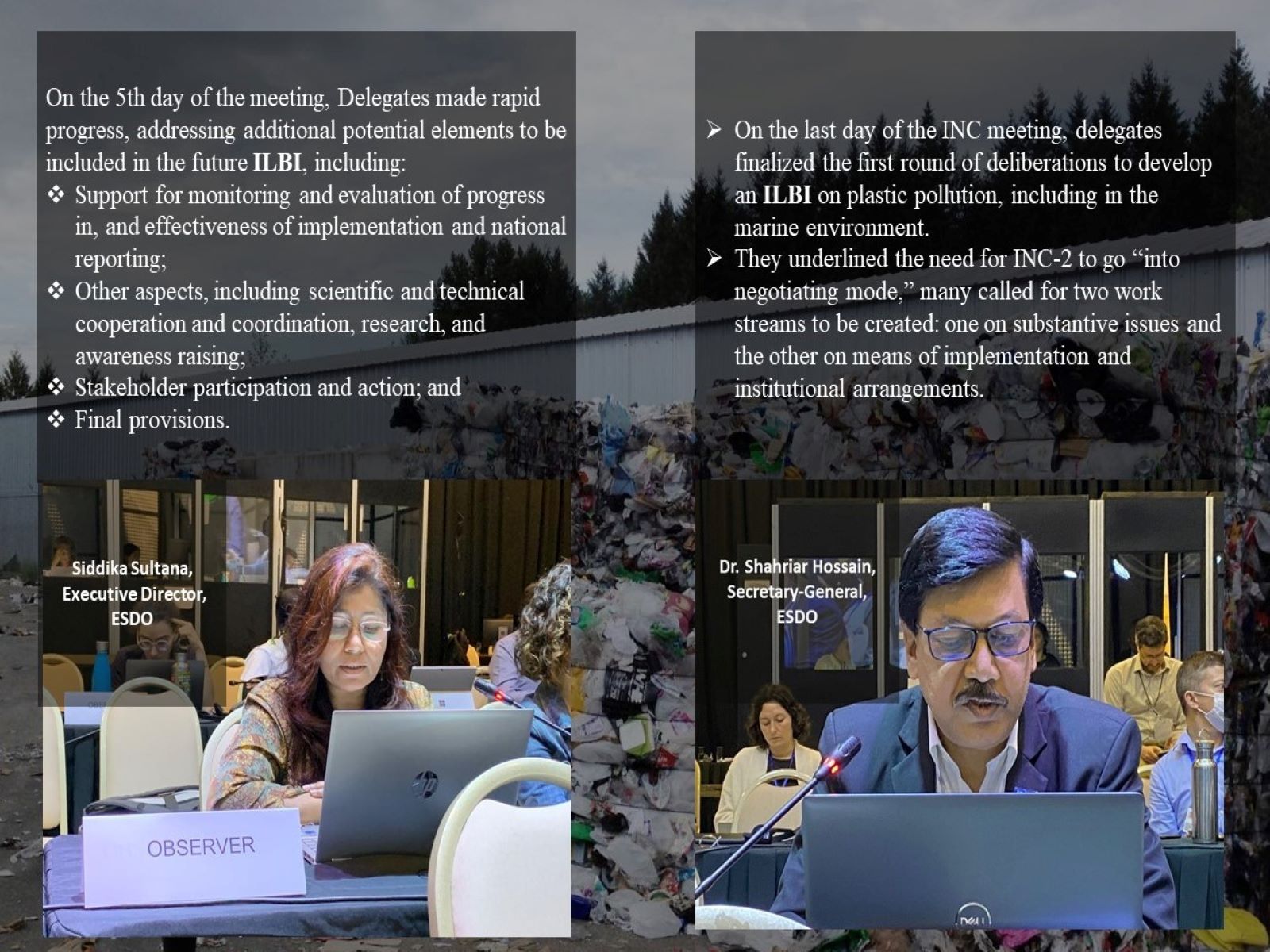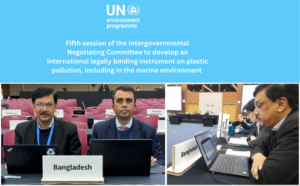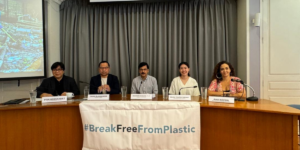The long-awaited 1st session of the Intergovernmental Negotiating Committee to develop an international legally binding instrument on plastic pollution, including in the marine environment (INC-1), has started on November 28, 2022, in Punta del Este, Uruguay, and will be held until December 2, 2022.
With more than 2300 delegates registered, more than 160 nations were represented on the first day of the meeting. Delegates met in plenary throughout the first day to hear opening remarks, discuss logistical difficulties, and start conversations around ILBI components.
On behalf of the Environment and Social Development Organization-ESDO and a participating organization of IPEN, Dr. Shahriar Hossain, Secretary General of ESDO, and Siddika Sultana, Executive Director of ESDO, are currently in Uruguay attending the meeting. Regarding the issue, ESDO has submitted a statement to the honorable Chair of the meeting which has been presented by Dr. Shahriar Hossain.
The statement states ‘A guideline on proper management way of plastic waste also needs to be established to secure our oceans. Due to improper management and lack of reasonable consideration of people, plastics go down the drain, and eventually, it goes into our oceans which is the reason for the transboundary movement of plastic wastes via waterways. Plastics from things like wet wipes, microbeads in cosmetic products, and all manner of tiny plastic fragments escape to the ocean this way. This can impose a serious threat to our ocean resources.’
It also states and quotes ‘The management of current stockpiles of plastics must not release toxic chemicals, or plastic litter, or contribute to climate change. Non-circular plastics (those containing toxic additives) should be identified, segregated, and safely disposed of. The export of plastic waste for disposal purposes should be prohibited and effective national collection and recycling systems should be funded. Burning plastic waste or associated derived fuels for energy in cement kilns, incinerators, or other combustion technologies is not circular, renewable, or sustainable and should be prohibited.’
On behalf of ESDO and as a participant organization of IPEN, Executive Director of ESDO Siddika Sultana intervened on the 4th day of the INC Session. She focused on other aspects, including scientific and technical cooperation and coordination, research, and awareness raising. In her statement, she urged INC to adopt the precautionary principle in making decisions to prevent the harms of plastics and their associated chemicals. It is also important that this INC, as well as the Plastics Treaty, work with the independent scientific community and have access to the best available science, free from the influence of corporate interests.
The statement states that the scientific community will be a crucial stakeholder in supporting the INC in its work, including by providing scientific evidence on how to:
- Reduce the amounts of plastics produced;
- Substitute and eliminate plastics containing hazardous polymers and additives, and;
- Assess technologies that are currently, without any scientific basis or independent evaluations, promoted as quick fixes to plastic pollution.



